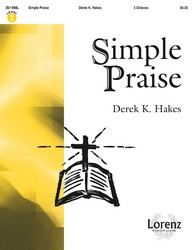- |
User Links
766
Lord, We Hear Your Word with Gladness
Hymn Information
- First Line
- Lord, we hear your word with gladness
- Author
- Margaret Clarkson, b. 1915
- Tune Name
- HOLY MANNA
- Tune Source
- W. Moore, <cite>Columbian Harmomy</cite>, 1825
- Topic
- Discipleship · Evangelism · Jesus Christ: Word Made Flesh · Responses: To Scripture · Elements of Worship: Hearing the Word
Copyright Information
- Text Copyright
- © 1987 Hope Publishing Company
- Tune Copyright
- Public Domain
- Reprint/Projection Information
- Words: Permitted with a license from CCLI.com or from OneLicense.net. If you do not own one of these licenses, please contact the copyright holder for permission.
- Music: The Music is in the Public Domain; you do not need permission to project or reprint the Music.
Full Text
Scripture References
- · · · · · · · · ·
Further Reflections on Scripture References
This text proclaims the power of God’s Word, spoken, read, and preached. The three stanzas rehearse the work of the Spirit through God’s Word: we hear, respond, understand. As a result, we pledge to make God’s gospel heard by lives that are “love in action.”
Confessions and Statements of Faith References
Further Reflections on Confessions and Statements of Faith References
This song emphasizes our need to listen well, and includes a call to ourselves and others to receive it as God’s truth. Such prayers and exhortations implement the convictions of Belgic Confession, Article 24 and Our World Belongs to God, paragraph 32: “The Bible is the Word of God, the record and tool of his redeeming work. It is the Word of truth, breath of God, fully reliable in leading us to know God and to walk with Jesus Christ in new life.”
766
Lord, We Hear Your Word with Gladness
Additional Prayers
A Prayer of Acclamation
Gracious God, in every good life your word is at work. Your word smothers hatred and kindles love. Your word dispels envy and excites gratitude. Your word softens anger and hardens resolve to do what’s right. Today we gladly feast on your word through Jesus Christ our Lord. Amen.
—
Cornelius Plantinga, Jr.
766
Lord, We Hear Your Word with Gladness
Tune Information
- Name
- HOLY MANNA
- Key
- G Major
- Meter
- 8.7.8.7 D
Musical Suggestion
Pentatonic and in AABA form, this tune works well for canonical singing, with two groups one measure apart. Keep the accompaniment simple, perhaps with guitar (or auto harp) and a solo instrument on the melody. This Appalacian tune was intended for sturdy, unaccompanied singing in harmony. Here are some ideas for accompaniment:
766
Lord, We Hear Your Word with Gladness
Hymn Story/Background
HOLY MANNA is an Appalachian tune, published in William Moore's four-shape tune book The Columbian Harmony in 1825. Moore (from Wilson County in west Tennessee) claimed authorship of eighteen of the tunes in that collection, including HOLY MANNA, which was set to "Brethren, We Have Met to Worship." HOLY MANNA was a very popular tune, given various names and set to various texts in many collections.
—
Bert Polman
Author Information
In 1919 Margaret Clarkson moved to Toronto, where she has lived for much of her life. Educated at Toronto Teachers' College, she taught elementary school in Barwick, Ontario (1935-37), and was supervisor of public school music in Kirkland Lake, Ontario (1937-42). From 1942 to 1973 she taught in various elementary schools in Toronto. Clarkson has published seventeen books, including The Creative Classroom (1958), Rivers Among the Rocks (1967), Destined for Glory: the Meaning of Suffering (1983), and All Nature Sings (1986). Her hymns were published in A Singing Heart: The Collected Hymns of Margaret Clarkson (1987). She has been a strong supporter of IVCF and wrote a number of the theme hymns for their Urbana Mission Conferences. In 1993 Clarkson Was honored as a Fellow of the Hymn Society in the United States and Canada.
—
Bert Polman
Composer Information
Little is known about William Moore, except that he published The Columbian Harmony in 1825 and was from Wilson County, Tennessee.
—
Laura de Jong
Suggestions or corrections? Contact us


 My Starred Hymns
My Starred Hymns






